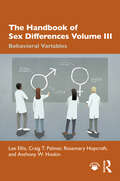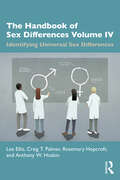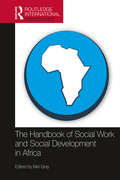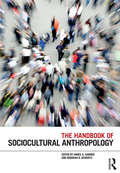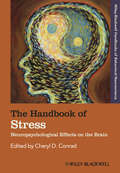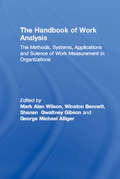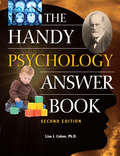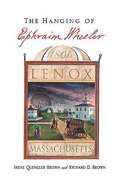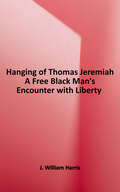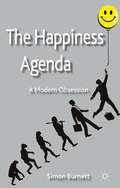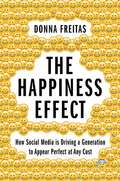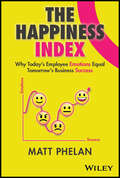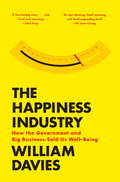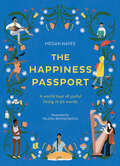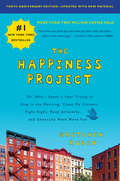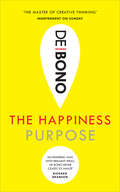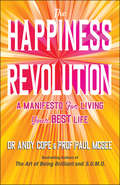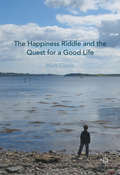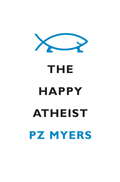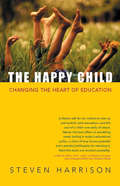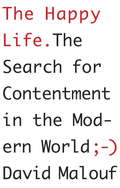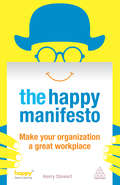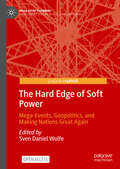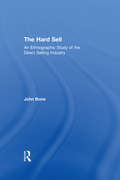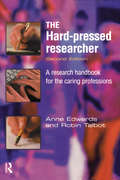- Table View
- List View
The Handbook of Sex Differences Volume III Behavioral Variables (The Handbook of Sex Differences)
by Craig T. Palmer Lee Ellis Anthony W. Hoskin Rosemary HopcroftThe Handbook of Sex Differences is a four-volume reference work assembled and written to assess sex differences in human traits (although findings regarding other species are also included). Based on the authors’ highly influential 2008 book Sex Differences, these volumes highlight important new research findings from the last decade and a half alongside earlier findings. Conclusions reached by meta-analyses are also included. In this, the work’s third volume, findings from thousands of studies pertaining to behavior, broadly defined, are summarized. Traits covered include those involving personality, social behavior, criminality, work, and sex stereotypes. The eight chapters comprising Volume III are as follows: 16. Personality and Behavioral Tendencies 17. Social Behavior 18. Acquiring, Selling, and Consuming Behavior 19. Criminality, Near-Criminality, and Victimization 20. Education, Work, Social Status, and Territorial Behavior 21. Sex Stereotypes 22. Attitudes and Actions Toward Others According to their Sex 23. Ecologically Based Sex Differences The Handbook of Sex Differences is of significant importance for any researcher, student, or professional who requires a comprehensive resource on sex differences.
The Handbook of Sex Differences Volume IV Identifying Universal Sex Differences (The Handbook of Sex Differences)
by Craig T. Palmer Lee Ellis Anthony W. Hoskin Rosemary HopcroftThe Handbook of Sex Differences is a four-volume reference work written to assess sex differences, with a primary focus on the human species. Based on the authors’ highly influential 2008 book Sex Differences, these volumes highlight important new research findings from the last decade and a half alongside earlier findings. In this, the work’s fourth and last volume, two related questions are addressed: Are there universal sex differences (i.e., sex differences found in all societies)? And if the answer is yes, what are they and how can each one be theoretically explained? To answer the first of these two questions, this volume condenses much of the research findings amassed in the book’s first three volumes into summary tables. Then, to help identify likely universal sex differences, three versions of social role theory and two versions of evolutionary theory are examined relative to each possible universal sex difference. Consideration is even given to religious scriptures as a sixth type of explanation. In the concluding analyses, 308 likely universal sex differences are identified. No single theory was able to explain all these differences. Nevertheless, the two evolutionary theories were better in this regard than any of the three social role theories, including the recently proposed biosocial version of social role theory. The Handbook of Sex Differences is of importance for any researcher, student, or professional who requires a comprehensive resource on sex differences.
The Handbook of Social Work and Social Development in Africa (Routledge International Handbooks)
by Mel GrayAll recent books on international social work mention Africa only briefly and few engage with the broader field of development studies. This book focuses solely on the unique African context engaging with issues relating to social work and development more broadly thus enabling a deeper examination and more complex and nuanced picture to emerge. Unlike most academic works, this book highlights multiple practitioner voices, with authors or co-authors that have recently been or are currently practising social workers. As an edited book, it draws from both academic research as well as lived practice experience, supported by strong theoretical positioning and guidance in introductory chapters, drawing on African literature, wherever possible. Looking at case-studies from Lesotho, Botswana, Kenya, Zimbabwe, Ethiopia, Namibia, Uganda, Nigeria, Kenya, South Africa, Rwanda, Zambia and Tanzania and covering established areas of practice such as child protection; working with older people; working with people with disabilities; mental health; and mainstream services targeting women as well as emerging areas of developmental social work practice, such as humanitarian assistance in post-conflict situations; work with immigrants and refugees; and the training of community-based workers, this book takes a future-oriented perspective that aims to move beyond well-worn critiques to envision constructive and sustainable futures for social work and social development in Africa from a critical perspective.
The Handbook of Sociocultural Anthropology
by James G. Carrierhe Handbook of Sociocultural Anthropology presents a state of the art overview of the subject - its methodologies, current debates, history and future. It will provide the ultimate source of authoritative, critical descriptions of all the key aspects of the discipline as well as a consideration of the general state of the discipline at a time when there is notable uncertainty about its foundations, composition and direction. Divided into five core sections, the Handbook: examines the changing theoretical and analytical orientations that have led to new ways of carrying out research; presents an analysis of the traditional historical core and how the discipline has changed since 1980; considers the ethnographic regions where work has had the greatest impact on anthropology as a whole; outlines the people and institutions that are the context in which the discipline operates, covering topics from research funding to professional ethics.Bringing together leading international scholars, the Handbook provides a guide to the latest research in social and cultural anthropology. Presenting a systematic overview - and offering a wide range of examples, insights and analysis - it will be an invaluable resource for researchers and students in anthropology as well as cultural and social geography, cultural studies and sociology.
The Handbook of Stress: Neuropsychological Effects on the Brain (Blackwell Handbooks of Behavioral Neuroscience #9)
by Cheryl D. ConradThe Handbook of Stress: Neuropsychological Effects on the Brain is an authoritative guide to the effects of stress on brain health, with a collection of articles that reflect the most recent findings in the field. Presents cutting edge findings on the effects of stress on brain health Examines stress influences on brain plasticity across the lifespan, including links to anxiety, PTSD, and clinical depression Features contributions by internationally recognized experts in the field of brain health Serves as an essential reference guide for scholars and advanced students
The Handbook of Work Analysis: Methods, Systems, Applications and Science of Work Measurement in Organizations (Applied Psychology Series)
by Winston Bennett Mark A. Wilson Shanan G. Gibson George M. Alliger Erich C. Dierdorff Suzanne Tsacoumis Robert J. Harvey Gregory M. HurtzThis new handbook, with contributions from experts around the world, is the most comprehensive treatise on work design and job analysis practice and research in over 20 years. The handbook, dedicated to Sidney Gael, is the next generation of Gael’s successful Job Analysis Handbook for Business, Industry and Government, published by Wiley in 1988. It consists of four parts: Methods, Systems, Applications and Research/Innovations. Finally, a tightly integrated, user-friendly handbook, of interest to students, practitioners and researchers in the field of Industrial Organizational Psychology and Human Resource Management. Sample Chapter available: Chapter 24, Training Needs Assessment by Eric A. Surface is available for download.
The Handy Psychology Answer Book
by Lisa J. CohenBridging the gap between the entertainment-focused "pop psychology” on television and the dry academic research that is published in journals, The Handy Psychology Answer Book helps answer why humans do what we do through accurate scientific data presented in a lively, accessible, and engaging way. It covers the fundamentals and explains the psychology behind how people deal with money, sex, morality, family, children, aging, addiction, work, and other everyday issues. Fully revised to reflect the latest scientific research--such as the current DSM-5 (Diagnostic and Statistical Manual of Mental Disorders, published by the American Psychiatric Association); the latest neurobiological theories; and the changing face of marriage--this timely reference has expanded to include information sections on the biology and evolution of emotions; technology and adolescence; bisexuality; optimism; autism; as well as a full section on the law, eyewitness testimony and police shootings. Featuring more than 1,500 answers to questions concerning how the human mind and the science of psychology really work such as: How have other cultures addressed psychological issues? Why was Freud so focused on sex? How can I maintain a healthy brain? Is it normal to argue during marriage? Does religion make people happier? How do we reduce social prejudice?
The Hanging Of Ephraim Wheeler: A Story Of Rape, Incest, And Justice In Early America
by Richard D. Brown Irene Quenzler BrownIn 1806 an anxious crowd of thousands descended upon Lenox, Massachusetts, for the public hanging of Ephraim Wheeler, condemned for the rape of his thirteen-year-old daughter, Betsy. Not all witnesses believed justice had triumphed. The death penalty had become controversial; no one had been executed for rape in Massachusetts in more than a quarter century. Wheeler maintained his innocence. Over one hundred local citizens petitioned for his pardon--including, most remarkably, Betsy and her mother. Impoverished, illiterate, a failed farmer who married into a mixed-race family and clashed routinely with his wife, Wheeler existed on the margins of society. Using the trial report to reconstruct the tragic crime and drawing on Wheeler's jailhouse autobiography to unravel his troubled family history, Irene Quenzler Brown and Richard D. Brown illuminate a rarely seen slice of early America. They imaginatively and sensitively explore issues of family violence, poverty, gender, race and class, religion, and capital punishment, revealing similarities between death penalty politics in America today and two hundred years ago. Beautifully crafted, engagingly written, this unforgettable story probes deeply held beliefs about morality and about the nature of justice.
The Hanging of Thomas Jeremiah: A Free Black Man's Encounter With Liberty
by J. William HarrisThe tragic untold story of how a nation struggling for its freedom denied it to one of its own. In 1775, Thomas Jeremiah was one of fewer than five hundred “Free Negros” in South Carolina and, with an estimated worth of £1,000 (about $200,000 in today’s dollars), possibly the richest person of African descent in British North America. A slaveowner himself, Jeremiah was falsely accused by whites—who resented his success as a Charleston harbor pilot—of sowing insurrection among slaves at the behest of the British. Chief among the accusers was Henry Laurens, Charleston’s leading patriot, a slaveowner and former slave trader, who would later become the president of the Continental Congress. On the other side was Lord William Campbell, royal governor of the colony, who passionately believed that the accusation was unjust and tried to save Jeremiah’s life but failed. Though a free man, Jeremiah was tried in a slave court and sentenced to death. In August 1775, he was hanged and his body burned. J. William Harris tells Jeremiah’s story in full for the first time, illuminating the contradiction between a nation that would be born in a struggle for freedom and yet deny it—often violently—to others.
The Happiness Agenda
by Simon BurnettExplores why contemporary Anglo-American society is obsessed with happiness. Striving to be happy is now a morally imperative pursuit. Through the lens of novel social theory, this book explicates how this has transpired as consequence of a complex 'conspiracy of coordination' between political, organisational and psychological developments.
The Happiness Effect: How Social Media is Driving a Generation to Appear Perfect at Any Cost
by Donna Freitas Christian SmithSexting. Cyberbullying. Narcissism. Social media has become the dominant force in young people's lives, and each day seems to bring another shocking tale of private pictures getting into the wrong hands, or a lament that young people feel compelled to share their each and every thought with the entire world. Have smartphones and social media created a generation of self-obsessed egomaniacs? <p>Absolutely not, Donna Freitas argues in this provocative book. And, she says, these alarmist fears are drawing attention away from the real issues that young adults are facing.
The Happiness Index: Why Today's Employee Emotions Equal Tomorrow's Business Success
by Matt PhelanLearn to reconnect your brain and heart to find happiness and engagement at work and in life In The Happiness Index: Why Today's Emotions Equal Tomorrow's Business Success, cofounder and CEO of The Happiness Index Matthew Phelan delivers a fascinating dive into data from over 100 countries and 2 million human beings that helps us understand what really drives our engagement and happiness at work. Grounded in an evidence-based and neuroscientific approach, the book skips the memes and inspirational quotes in favor of data and insights based on real-time information from real people. In the book, you’ll learn that “engagement” is what our brains need, and “happiness” is what our hearts need. You’ll discover what we need to thrive and succeed in work and life, as well as: A step-by-step approach to learning from real-world data about happiness Practical lessons applicable to any organization that will help both individuals and groups succeed Case studies from recognizable firms around the world and interviews with executives to help bring the data to life A simultaneously inspirational and hands-on treatment of a subject of singular importance to everyone in the working world, The Happiness Index will benefit executives, managers, and other business leaders, as well as founders, business owners, and anyone else interested in helping the people around them flourish.
The Happiness Industry
by William DaviesIn winter 2014, a Tibetan monk lectured the world leaders gathered at Davos on the importance of Happiness. The recent DSM-5, the manual of all diagnosable mental illnesses, for the first time included shyness and grief as treatable diseases. Happiness has become the biggest idea of our age, a new religion dedicated to well-being. In this brilliant dissection of our times, political economist William Davies shows how this philosophy, first pronounced by Jeremy Bentham in the 1780s, has dominated the political debates that have delivered neoliberalism. From a history of business strategies of how to get the best out of employees, to the increased level of surveillance measuring every aspect of our lives; from why experts prefer to measure the chemical in the brain than ask you how you are feeling, to why Freakonomics tells us less about the way people behave than expected, The Happiness Industry is an essential guide to the marketization of modern life. Davies shows that the science of happiness is less a science than an extension of hyper-capitalism.
The Happiness Passport: A World Tour of Joyful Living in 50 Words
by Megan HayesFifty words from cultures around the world that capture the secrets of living well, from craic to yang sheng and hygge to ubuntu: “A pure joy to read.” —FlowMagazineThe Happiness Passport is a collection of wonderfully evocative words from around the globe whose definitions resonate with us all. Though the words themselves often seem untranslatable, the meaning behind each expression will stir up familiar emotions—bringing joy, contentment, and a greater understanding of other cultures. There are a wealth of examples to discover for a more wholesome outlook on life, including: • Hiraeth—the word for deep longing for home (Welsh)• Goya—the transportive ability of good storytelling (Urdu)• Yugen—the ability of the natural world to deeply move us (Japanese)• Gigil—the overwhelming urge to cuddle an adorable pet (Philippine Tagalog)This treasure trove of delights examines the cultural context of each expression and the lessons that we can apply in our own lives to achieve greater contentment, with beautiful original illustrations that evoke each elusive expression.“[Hayes] joins the dots between these differing beliefs to help us cultivate a richer shared vocabulary of happiness, and unravels the global interpretations of living well and contentedly.” —Psychologies Magazine
The Happiness Project, Tenth Anniversary Edition: Or, Why I Spent a Year Trying to Sing in the Morning, Clean My Closets, Fight Right, Read Aristotle, and Generally Have More Fun
by Gretchen Rubin#1 New York Times Bestseller“An enlightening, laugh-aloud read. . . . Filled with open, honest glimpses into [Rubin’s] real life, woven together with constant doses of humor.”—Christian Science MonitorGretchen Rubin’s year-long experiment to discover how to create true happiness. Drawing on cutting-edge science, classical philosophy, and real-world examples, Rubin delivers an engaging, eminently relatable chronicle of transformation. This special 10th Anniversary edition features a Conversation with Gretchen Rubin, Happiness Project Stories, a guide to creating your own happiness project, a list of dozens of free resources, and more.Gretchen Rubin had an epiphany one rainy afternoon in the unlikeliest of places: a city bus. “The days are long, but the years are short,” she realized. “Time is passing, and I’m not focusing enough on the things that really matter.” In that moment, she decided to dedicate a year to her happiness project.In this lively and compelling account—now updated with new material by the author—Rubin chronicles her adventures during the twelve months she spent test-driving the wisdom of the ages, current scientific research, and lessons from popular culture about how to be happier. Among other things, she found that novelty and challenge are powerful sources of happiness; that money can help buy happiness, when spent wisely; that outer order contributes to inner calm; and that the very smallest of changes can make the biggest difference.This updated edition includes:An extensive new interview with the authorStories of other people’s life-changing happiness projectsA resource guide to the dozens of free resources created for readersThe Happiness Project ManifestoAn excerpt from Rubin’s bestselling book The Four Tendencies: The Indispensable Personality Profiles that Reveal How to Make Your Life Better (and Other People’s Lives Better, Too)
The Happiness Revolution: A Manifesto for Living Your Best Life
by Andy Cope Paul McGeeA new book by two of the biggest powerhouses in positive psychology and personal development – Dr Andy Cope and Professor Paul McGee Happiness. We chase it, we crave it…it’s so in demand… yet so scarce and fleeting. But here’s the good news. In The Happiness Revolution: A Manifesto For Living Your Best Life, bestselling authors Dr Andy Cope and Professor Paul McGee deliver a page-turning self-help book of the times, for the times. As the world wakes up to a new kind of normal, The Happiness Revolution challenges readers to sign up to an uprising of wellbeing and to making the most of the privilege of being on this planet. The book outlines a 10-point Happiness Manifesto. Grounded in the science of human flourishing and the reality of life, the principles are simple, do-able and above all make a difference not only to yourself but to others too. Let the fight back to mental wealth start right here. Welcome to global domination of the happiness kind! Discover: How to regain your sanity, clarity, and wellbeing, even when your smartphone, kids, spouse, job, and possessions seem to be conspiring to keep you from doing just that. Why it can be so hard to maintain a happy outlook when the outside world has never been so fast, complex, and unpredictable. How to be at your best in a world that is doing its worst. Happiness is the #1 thing you want for yourself and your family. The Happiness Revolution is an indispensable guide for everyone trying to live their best life and to spread some happiness whilst doing so. Rise Up and Be Happy! Vive la revolution!
The Happiness Riddle and the Quest for a Good Life
by Mark CieslikThis book examines the meaning of happiness in Britain today, and observes that although we face challenges such as austerity, climate change and disenchantment with politics, we continue to be interested in happiness and living well. The author illustrates how happiness is a far more contested, social process than is often portrayed by economists and psychologists, and takes issue with sociologists who often regard wellbeing and the happiness industry with suspicion, whilst neglecting one of the key features of being human – the quest for a good life. Exploring themes that question what it means to be happy and live a good life in Britain today, such as the challenges young people face making their way through education and into their first jobs; work life-balance; mid-life crises; and old age, the book presents nineteen life stories that call for a far more critical and ambitious approach to happiness research that marries the radicalism of sociology, with recent advances in psychology and economics. This book will appeal to students and academics interested in wellbeing, happiness and quality of life and also those researching areas such as the life course, work-life balance, biographies, aging and youth studies.
The Happy Atheist
by Pz Myers"I'm an atheist swimming in a sea of superstition, surrounded by well-meaning, good people with whom I share a culture and similar concerns, and there's only one thing I can do. I have to laugh." --PZ Myers Through his popular science blog, Pharyngula, PZ Myers has entertained millions of readers with his infectious love of evolutionary science and his equally infectious disdain for creationism, biblical literalism, intelligent design theory, and other products of godly illogic. In this funny and fearless book, Myers takes on the religious fanaticism of our times with the gleeful disrespect it deserves, skewering the apocalyptic fantasies, magical thinking, hypocrisies, and pseudoscientific theories advanced by religious fundamentalists of all stripes. With a healthy appreciation of the absurd, Myers not only pokes fun at the ridiculous tenets of popular religions but also highlights how the persistence of Stone Age superstitions can have dark consequences: interfering with our politics, slowing our scientific progress, and limiting freedom in our culture. Forceful and articulate, scathing and funny, The Happy Atheist is a reaffirmation of the revelatory power of humor and the truth-revealing powers of science and reason.
The Happy Child: Changing the Heart of Education
by Steven HarrisonThe author of The Shimmering World proposes allowing children to follow their own educational path, thus enabling their curiosity to fuel their learning. In this thought-provoking new book, bestselling author Steven Harrison ventures far outside the box of traditional thinking about education. His radical proposal? Children naturally want to learn, he asserts, so let them direct their own education in democratic learning communities where they can interact seamlessly with their neighborhoods, their towns, and the world at large. Most learning systems apply external motivation through grades, rankings, teacher direction, and approval. The Happy Child suggests that a self-motivated child who is interdependent within a community can develop the full human potential to live a creative and fulfilling life. Harrison focuses on the integration of the whole child, the learning environment, and the non-coercive spirit of curiosity-driven education. Part social-critic, part humanistic visionary, Harrison not only focuses on a reorientation of education, but the possibility of rethinking our families, communities and workplaces, and ultimately what gives our children, and all of us, real happiness. Harrison adds his voice to those of A. S. Neil, John Holt, and John Gatto, all who believe that contemporary schools can never be reformed sufficiently, but must be abandoned entirely for something new and vital to emerge. Praise for The Happy Child &“A clarion call for our culture to wise up and re-think what education—and the soul of a child—are really all about. Steven Harrison offers us something sorely lacking in today&’s educational policy: a vision of true human potential and a practical philosophy for attaining it. Read this book and envision possibility.&” —Jane M. Healy, Ph, author of Failure to Connect: How Computers Affect Our Children&’s Minds &“Harrison's hard-biting social critique of the plight children and education are in should wake us up to our atrocious treatment of our young, that we might actually address their critical needs rather than simply ignoring them as usual.&” —Joseph Chilton Pearce, author of The Crack in the Cosmic Egg &“Such a nobly simple idea, that the true purpose of education should be happiness, and so clearly reasoned.&” —Chris Mercogliano, author of Making It Up As We Go Along
The Happy Life
by David MaloufBy Australia's greatest contemporary author, an elegant, succinct meditation on what makes for a happy life. ;-)"Happiness surely is among the simplest of human emotions and the most spontaneous," says David Malouf. But what exactly are we looking for when we chase happiness? At this particular moment in history, privileged, industrialized nations have lessened much of what makes us unhappy: widespread poverty, illness, famine. Yet we are still unfulfilled, turning increasingly to yoga, church, Match.com, drugs, clinical therapy and retail therapy. What is at the root of our collective stress, and how can we find our way to contentment? Drawing on mythology, philosophy, art and literature, Malouf traces our conception of happiness throughout history, distilling centuries of thought into a lucid narrative. He discusses the creation myths of ancient Greece and the philosophical schools of Athens, analyzes Thomas Jefferson's revolutionary declaration that "the pursuit of happiness" is a right, explores the celebration of sensual delight in Rembrandt and Rubens and offers a perceptive take on a modern society growing larger and more impersonal. With wisdom and insight, Malouf investigates that simplest, most spontaneous of feelings and urges us to do the same.
The Happy Manifesto
by Henry StewartImagine a workplace where people are energized and motivated by being in control of the work they do. Imagine they are trusted and given freedom, within clear guidelines, to decide how to achieve their results. Imagine they are able to get the life balance they want. Imagine they are valued according to the work they do, rather than the number of hours they spend at their desk.Wouldn't you want to work there? Wouldn't it also be the place that would enable you to work at your best and most productive? The Happy Manifesto is a guide to anyone wanting to improve their workplace. Learn how you too could change your work environment for the better.
The Hard Edge of Soft Power: Mega-Events, Geopolitics, and Making Nations Great Again (Mega Event Planning)
by Sven Daniel WolfeThis open access book explores the linkages between geopolitics and hosting mega-events. It encompasses and transcends the international and domestic dimensions of soft power to unpack how mega-events shape cities and societies through notions of unity and greatness, but also investigates local developments beneath the Potemkin surface of the global spectacle. Drawing on a global range of case studies from Eastern Europe, Western Europe, North America, South America, Africa, the Middle East, Asia, and Australia, this volume features the sensitivity of grounded local research framed within geopolitical perspectives. Together, they present an international and transdisciplinary understanding of the local and global political implications of hosting mega-events. The volume reveals what hides under the mega-event spectacle: problems that – regardless of national context – most often occur to the detriment of host populations. This is an open access book.
The Hard Sell: An Ethnographic Study of the Direct Selling Industry
by John BoneIn this work John Bone provides a lively and engaging insight into the social world of direct selling organizations. He investigates these under-researched organizations via a detailed ethnography of two home improvement companies selling products such as fitted kitchens, double glazing and conservatories, as well as developing wider sociological debates on trust and interaction. These organizations tend to be loosely ordered and internally competitive collectives whose sole aim is to maximize short term profits through sales strategies that routinely employ the calculative exploitation of consumer norms and expectations. John Bone uses his findings to argue that amid the wave of increasing deregulation and liberalization that has supplanted the planned and regulated form of capitalism that predominated until the 1970s, such conditions are now becoming prevalent in mainstream contemporary organizations, threatening to unleash a latent disorder that underlies the rationality of 'modern' business.
The Hard-pressed Researcher: A research handbook for the caring professions
by Anne Edwards Robin TalbotWorking in the fields of education, health and social care demands a great deal of energy, effort and commitment on the part of the practitioner or trainee. When a research project is added to a workload the pressures can be great, particulary if the would-be-researcher is not confident about the process involved.The Hard-pressed Researcher provides practical guidance on how to undertake a research project. It has been written specially for practitioners and students in the fields of education, health and social care and assumes no specific knowledge of the research process.This revised and updated version of the first edition covers the major modes of research (experimental research, survey work, case study, interpretative research and action research) and provides step-by-step guidance from conceptualization through to report writing. Each chapter provides sources for further reading and the book ends with a series of statistical tables.All those studying or working in the caring professions will welcome the very straightforward and sympathetic approach of the authors, both of whom have considerable experience in the supervision of research work.
